by: Sulaiman Donaie, Saisha Wesley, Jhylie Roebuck, Jedell Titus, Adonai Smith, Mabika Alfonso, Ashly Ravariere
Throughout history, the United States has acquired countless territories for purposes such as wars and in earlier years, slaves, and agricultural exports. The United States Virgin Islands composed of the islands of St. Croix, St. Thomas, St. John, and Water Island have been under the ownership of the U.S. since the year of 1917.
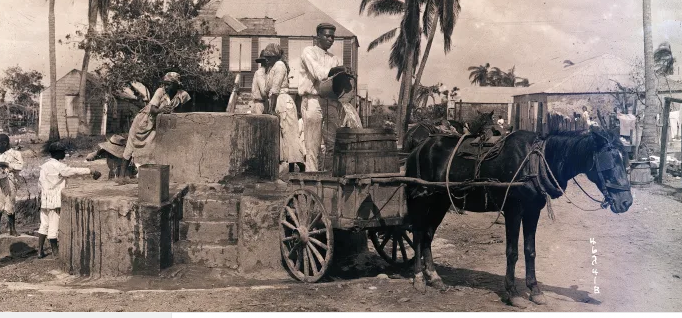
Bettmann Archive/Getty Images
A healthy sum of $25 million in gold was paid to Denmark to rule over the four beautiful islands. Over the past 104 years, however, we see that the U.S. Virgin Islands along with other five main Territories such as American Samoa, Guam, the Northern Mariana Islands, and Puerto Rico are being forgotten by the United States.
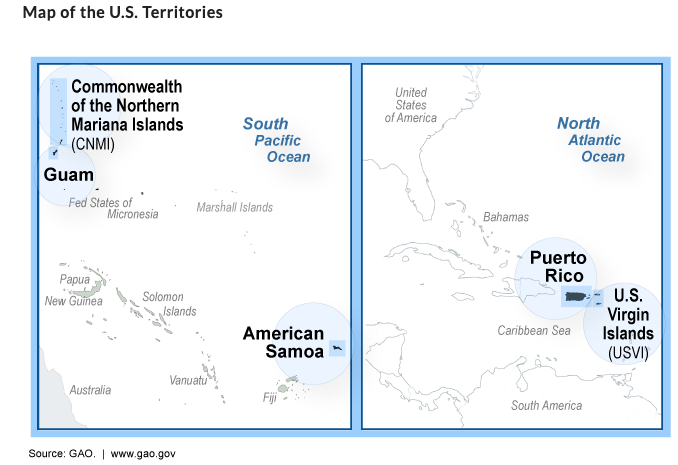
Alongside simple acts of citizenship such as being able to vote, the people of U.S. Territories are treated as second-class citizens economically. From receiving certain health benefits to extra funding during states of emergency, we see that the Virgin Islands and other Territories alike are forgotten when most decisions are being made.
Furthermore, residents of one of the 50 states relocate to the Virgin Islands, they can no longer vote for President or for voting members of Congress. In a recent count in 2018, the USVI has 49,788 registered voters who were not allowed to participate in the 2016 presidential election. According to native Virgin Islander and CNN/USA TODAY reporter, Fredreka Schouten, “Virgin Islanders are Americans by birth, free to live wherever we choose in the United States. But those who remain on the islands have a hybrid existence of sorts, unable to cast ballots for the president. The territory’s sole “delegate to Congress” cannot vote on the House floor.”
“Virgin Islanders are Americans by birth, free to live wherever we choose in the United States. But those who remain on the islands have a hybrid existence of sorts, unable to cast ballots for the president.” Fredreka Schouten
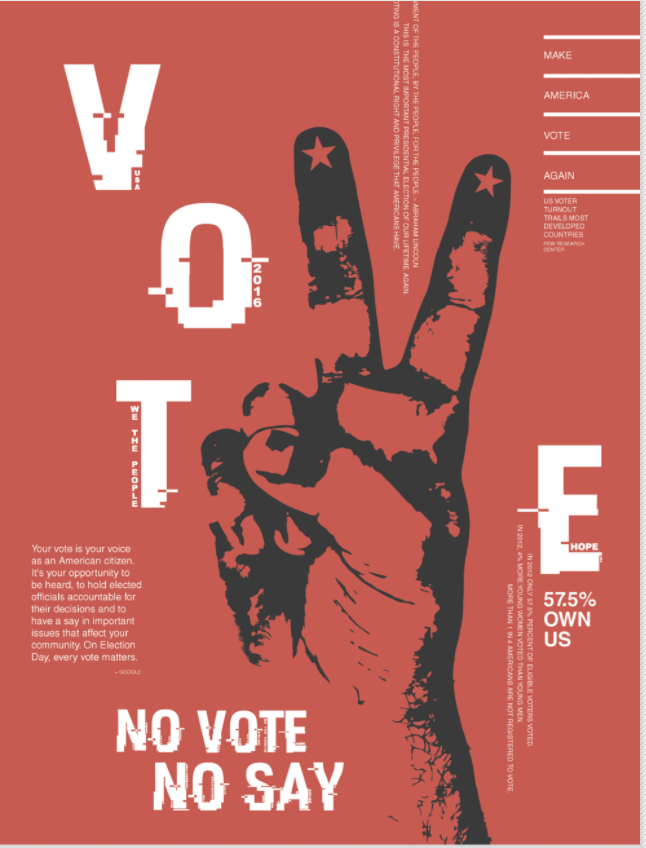
In 2017, the United States Virgin Islands and Puerto Rico experienced the worst hurricane since hurricane Hugo. Months went by without electricity and many without roofs over their heads. When the help finally arrived, the damage was extensive as one would imagine.
Because of the Virgin Islands and Puerto Rico being a common storm central, the main idea behind restoring electricity was to place the electricity poles underground however, this plan was never executed. Instead, the poles were placed in their former positions. The lights illuminating the highway in the continental U.S. are solar. As the USVI is regularly warm and graced by the sun, one would think we would be graced with such technologies as well. However, that is not so.
After the hurricane, food was scarce. Finding essentials such as bread and water was more difficult than anything imaginable. As U.S. Territories, relief should be quicker than what was displayed. much like many other businesses throughout the U.S Territories. Much like other Territories, businesses, such as banks and supermarkets in the USVI were marked “Closed due to the lack of electricity.”
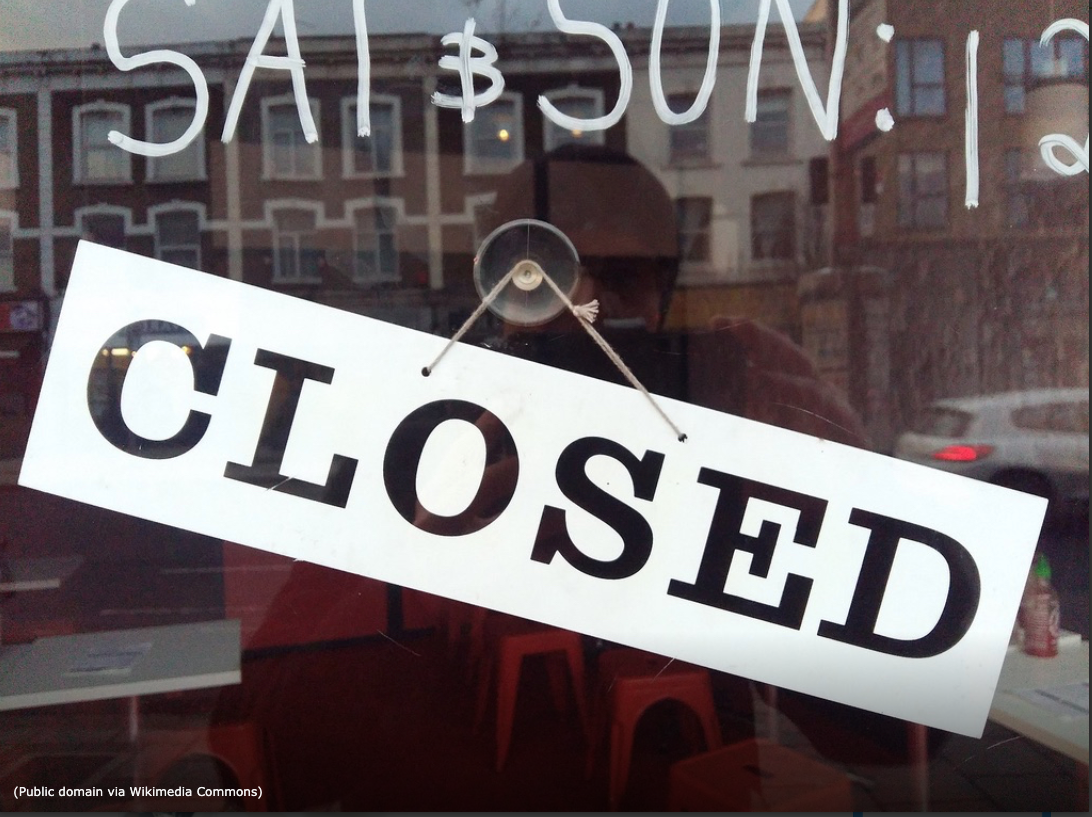
No one could store food in their freezers nor their fridges. The lack of refrigeration caused a massive rush of people into the markets and continued until the power throughout the islands were restored.
In January of 2018, New York Times reported that “only the majority of the island has received power. The disaster struck in September of 2017. Yet, only in January of 2018, most households are reporting regaining electricity.”
FEMA’s main job is to aid and help people recover from a disaster by providing a federal grant to victims but there is an extreme issue with FEMA, and it’s delay in assisting and supplying for U.S. Territories.
After two years Hurricane Maria and Irma hit, The New York Times published an article about the updated recovery and status of the U.S. Virgin Islands and Puerto Rico.
One of the most disheartening examples was the report on the failure to receive needed repairs and supplies to the local hospitals. According to the story, in 2019, St. Croix patients with gunshot wounds had to be treated in hallways and patients with organ failures were treated in trailers, all while medical workers had to disregard their own swollen rashes that were caused from the mold that was growing in the hospital floors.
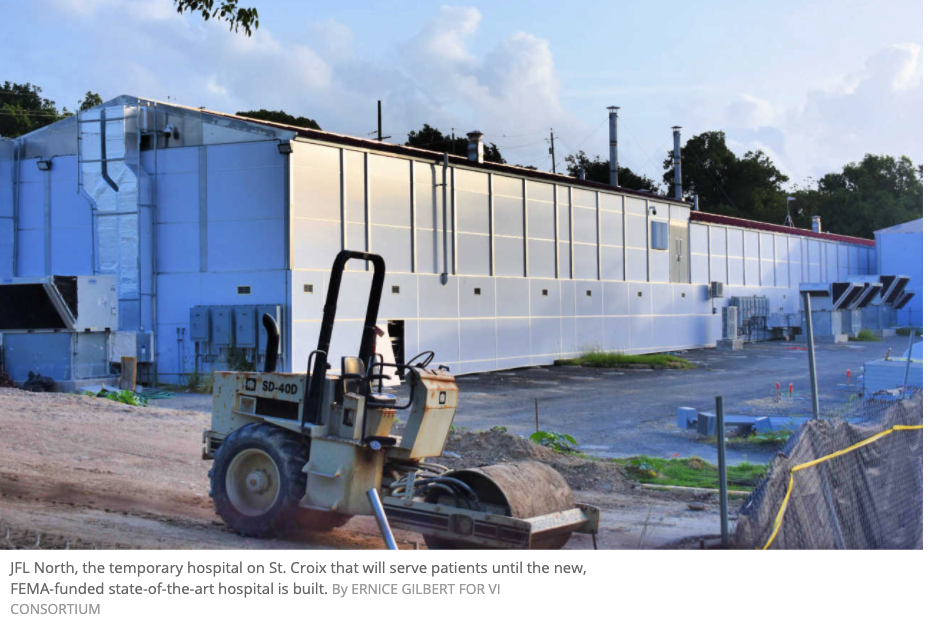
Juan F. Luis Hospital North (JFL North), still has not been completed, causing the STX hospital to lose money as residents need to go elsewhere for medical treatment.
Out of 9000 requests, only 190 long-term recovery tasks were funded in Puerto Rico. Also, out of the 1500 requests, only 218 were funded for the U.S. Virgin Islands. This contrast is made against facilities on the mainland.
Two years after Hurricane Harvey hit, Texas was provided funding for almost 4,000 permanent projects. Also, during that time period, Florida received funding for more than 3,700 projects. Dyma Williams, acting chief executive at the Juan F. Hospital in St. Croix, VI; states, “I hate to make the distinction about American versus not American, but at the end of the day, we’re not being treated the same way as other Americans are being treated.”
The mayor of Yabucoa, stated two years after the hurricanes, “We are in the same situation as we were in the days after the hurricane.” Vieques, an island apart of Puerto Rico, only medical center was destroyed by the hurricanes and had to be abandoned. People who needed to be treated had to wait at a ferry dock to be taken to a hospital on the mainland. It is proven that FEMA delays recovery periods for the U.S. Caribbean islands rather than somewhere in the mainland.
The negligent misrepresentation of the United States’ Territories has gone on for too long. Every U.S. citizen is entitled to a certain number of rights; however, The United States Territories have been suffocated from these birth-given rights.
The United States Territories are misrepresented in terms of representation in the U.S. presidential elections or elect voting members of the U.S. Congress. The U.S. Virgin Islands is an unincorporated territory and as an unincorporated territory of the United States, only select parts of The U.S. Constitution applies to its residents.
Although individuals who are born in the United States Virgin Islands are considered or categorized as U.S. citizens, residents of the territory are not allowed to vote in federal elections. The lack of representation is supposedly alleviated through the election of a Delegate to Congress; however, this representative is also nonvoting.

Representation with no real voice. Now imagine this scene inside of your mind; a child, John, inside of his room, up late as his life dream is to become the hero that our nation needs. John makes the right choices, even if most won’t agree with them and despite the lack of popularity. He has the nation’s best in mind.
Now, John grows up reading the Constitution and each case that this nation has dealt with, making sure to learn from both the nation’s past and their mistakes. He now graduates with a doctorate and the countless experiences that comes with it. John has travelled to the White House itself and interviewed many individuals in the Senate. He took in that information and made notes.
Now, John has obtained the opportunity to make his dream come true and help to move this country forward. When he prepare s to cast his vote on decisions that will change this nation for the better, he is denied the ability to vote. Curious for an explanation, he is only given a singular answer; he resides in a United States territory.
What this means is that if an individual originates from a United States territory she /he has less of a say in topics regarding their nation. A prime example would be arguments from the United States Virgin Islands representative, Stacey Plaskett who continues to keep this issue in the front of the pubic.
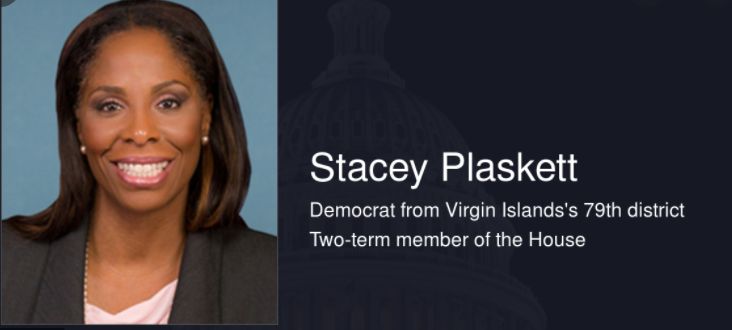
In early January when she was selected to served as a House Impeachment manager in the trial of President Donald Trump, she said that despite this position, she was not able to cast a vote in the House to impeach him.
Plaskett continued by saying that her constituents in the Virgin Islands, which are considered U.S. citizens, are still unable to vote for president, lack any voice in the Senate, and those same people only have a delegate in the House that is unable to vote to properly represent them.
“Every American has the right to vote—unless you live in a territory.”
A direct quote from her during the Senate Impeachment trial, “Every American has the right to vote—unless you live in a territory.” She goes even further as to deeming this treatment as un-American.
Work cited
Picture credit Link: https://www.usviodr.com/wp-content/uploads/2020/05/usvi-islands-st-thomas-st-croix-st-john.jpg
Leave a Reply to Ron Cancel reply